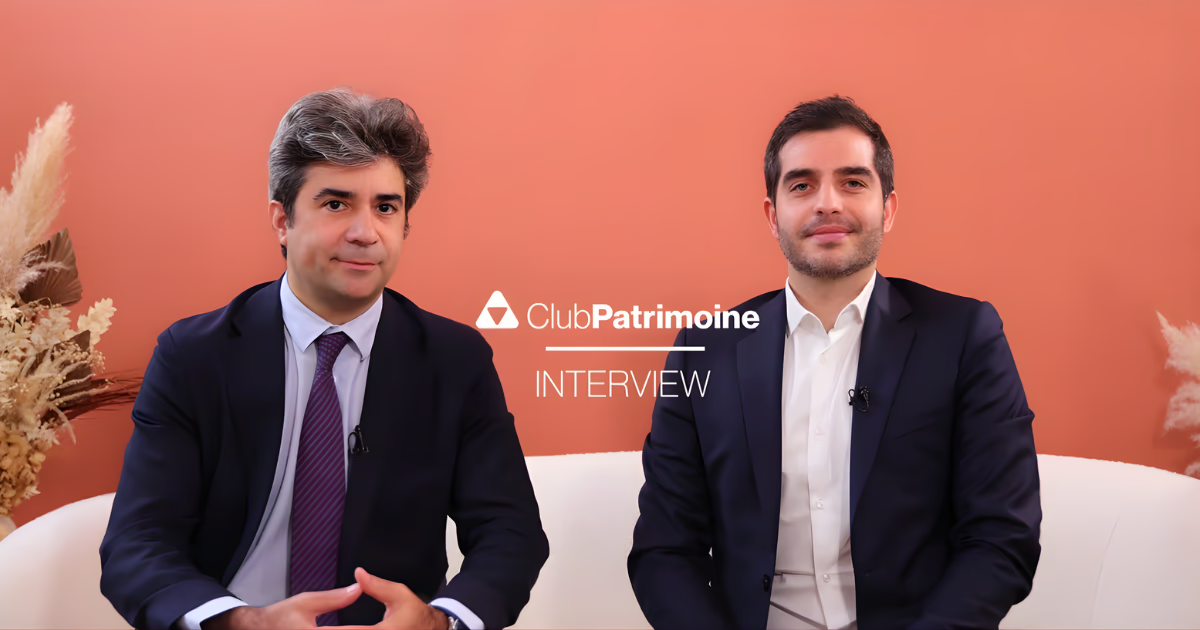Private Corner was SmartBourse's guest on its programme dedicated to the large family of unlisted assets. This unique asset class includes private debt, which is enjoying interesting momentum. Read the analysis of Estelle Dolla, President and co-founder of Private Corner, a digital asset management company offering a wide range of unlisted feeder funds invested in infrastructure, private equity and private debt.
Are you planning to invest in private debt or other unlisted assets? Don't hesitate to contact our experts:
Contact a Private Corner expert
On Tuesday 2 July 2024, SMART BOURSE welcomed the CEO of Private Corner to discuss the challenges and prospects for private debt in France.
🎥To watch the entire programme dedicated to investment, follow the link.
Private Corner, an innovative private equity firm in Paris
Settled in Paris, Private Corner is private equity firm whose creation is closely linked to the Pacte Act. The idea of founding Private Corner germinated a few months after the implementation of the Loi Pacte in 2019. The aim of the management company is to create a sort of transmission belt between two worlds that had previously spoken little or nothing to each other, and to give wealth and asset management professionals and their clients access to a selection of funds from €100,000 upwards in private assets via a fully digitised unlisted asset investment platform. This selection of leading funds offered by Private Corner is usually accessible from the point of view of institutional managers from several million euros...
The management company's model is B2B: Private Corner's target clients are wealth management advisers, private banks and family offices. The latter need to find solutions for building up an unlisted portfolio for their wealth management clients. And this is a market that is still in its infancy in France. For example, our management company obtained our authorisation in November 2020. And today, almost four years later, we still have a share of French wealth that is rather close to zero.
A new category of unlisted asset fund: private debt
There is a real challenge in educating an entire community, both advisers and their clients, about non-listed assets in general. After starting out in private equity, we moved on to infrastructure funds and now, since the end of May, we have opened a private debt fund called Global Private Debt Strategies, which gives investors exposure to the strategies of two iconic Anglo-Saxon asset managers, Archmont Asset Management and CVC Capital Partners, specifically their capital solutions strategy.
What is capital solutions?
It's a form of credit positioned between senior debt and equity. It's junior, mezzanine debt, combined with quasi-equity. Capital solutions enable us to achieve an annual return, at our level, of around 13% per annum. That may seem like a lot for private debt, but it's relatively easy to explain, since you have a risk-free rate to which you add the credit risk, the illiquidity premium and the famous solutions premium, since the special feature of these teams is that they are able to offer financing that is totally adapted and flexible to the companies to which they propose it. The two funds combined will finance 50 to 80 underlying companies, so the fund is highly diversified, both sectorally and geographically, and in terms of the number of companies financed. And the typical profile of the companies that will be supported are companies that are also supported by private equity funds.
Sponsored private debt vs non-sponsored private debt
On the unquoted market, you have sponsored private debt and private debt without a sponsor. Sponsored private debt is where companies are already backed by a private equity fund and seek private debt from another investment team that specialises in private debt.
Today, we are in an ecosystem on a European scale, because for the moment, Private Corner has not yet selected an American manager. We have stayed within the European economic area. At Private Corner, we have a team specialising in fund selection. We monitor 500 management companies on an almost permanent basis and keep an eye on the timetable for anticipated fund-raising. The aim is always to have a selection of 5 to 7 funds that our distributors can then use to build a tailor-made allocation for their clients.
Why is private debt so popular?
Private debt is a mature market today. It's a market that was born in the early 2000s, and which, naturally, experienced a boom after the 2008 crisis, when it was necessary to take over from the banks. Everything was frozen in terms of banking, regulation and so on. That's when private debt really began to accelerate. If you look at the size of the private date market over the last ten years, it has tripled.
So this is good momentum for investing in private debt. Unlisted assets should be an asset class in their own right as part of overall wealth management. Investing in private debt complements and diversifies private equity, with a good level of risk-adjusted return for wealthy clients in the process of building up their wealth in private assets, and with an investment horizon that is not as long as that for the asset class in general, since this strategy in particular has a seven-year horizon, which is relatively shorter, and which also allows us to set a rate of return.
In the current context, we ‘lock in’, we lock in yield. It's more or less the same strategy everywhere, and this was also the case for unlisted assets.
What is the typical profile of a company today that uses these private debt solutions?
The big advantage of private debt funds is that they have a high level of selectivity and therefore better monitoring of the associated risk, which is very important because demand for financing is growing all the time. If we look at the typical profile of a company applying for private debt from Capital Solutions, it's a company that is the leader in its market, with sales ranging from €50 million to €500 million (so the spectrum is quite broad), that is in a growth market, that is often subject to what we call consolidation tests and that therefore needs to be able to raise cash fairly quickly. This is also one of the virtues of private debt compared with intermediary bank debt, which is often made up of a pool of three to five banks and has much longer operational latencies than private debt funds, which have agility and flexibility.
Private debt allows financing to be released quickly. On the whole, a project will be financed in several weeks with a fund, whereas with a bank it takes several months. So when you're dealing with competitive issues for a company, it's prepared to pay this famous solution premium, this time saved, to gain market share, with the added bonus, to finish with a typical company identity sheet, of having a wide range of customers and therefore the assurance of recurring income.
Cegid, for example, which is financed by the private debt fund, wants to develop on a European scale. It is a company positioned in a market where there are high barriers to entry. When you're the leader in your market, it's more complicated for competitors to position themselves opposite you.
So it's this model in general that is the strength of private debt in the unlisted market. It's this capacity for agility, governance and the ability to take a long-term view that gives companies the power to strike, because they have and/or capital and debt financing that enables them to further consolidate their leadership position and ultimately accelerate their growth in a given market.






